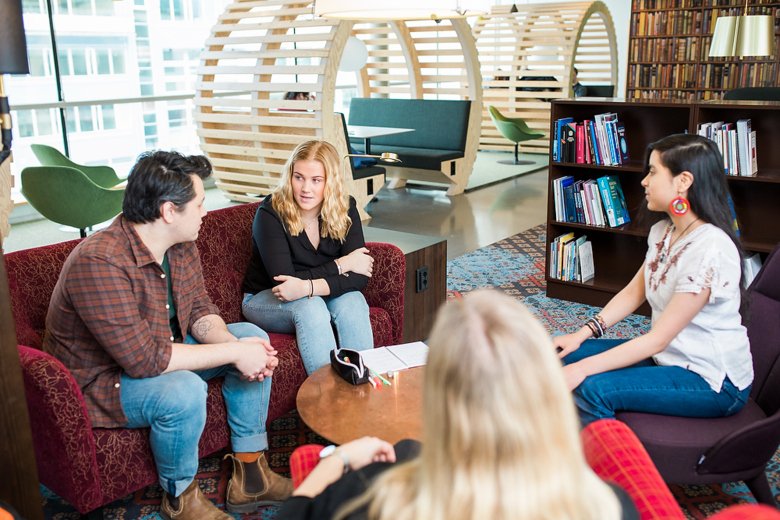For students attending the course Innovations for Emerging Cities: OpenLab Multidisciplinary Project Course. A potential course package (7,5/15 credits) course code 2QA306
This international master´s course introduce Design Thinking methodology for students to develop skills for creating solutions to large societal challenges. As a student you will learn about Design Thinking to develop solutions for a given societal challenge from an external client within Region Stockholm or Stockholm City. You work in teams of students from different universities, disciplines and backgrounds to understand, define, identify, prototype and test their innovative social solutions.
Syllabus
Welcome information
Please note that registration for the course is mandatory. Students who do not register within the registration period will be withdrawn. The registration period is open two weeks before the course starts and two days into the course. Read more about registration.
In spring 2026 the first course (2QA306) starts on Tuesday January 20th and the second course (2QA307) starts on Tuesday March 31st. Course days: Tuesdays and Thursdays. Please see: The Openlab website.
The learning activities of the course will take place on Tuesdays and Thursdays.
The course is held at the Openlab facilities at the Royal Technical University (KTH).
If you have questions regarding the course please contact the course leader (contact information is found further down).
Students will collaborate with help of the IT based learning platform Canvas. Access to Canvas will be given approximately one week before the course starts.
About the course disposition
For an entire semester, the Design Thinking process is applied twice (one iteration/period). Each step is supported by learning activities and tools with improvement work and visual prototyping in the foreground. If you read 15 credits, you get a similar knowledge base as if you read 7.5 credits, but a further iteration, which is why the tools in the learning activities together have a wider variation, even though they are of the same kind in Period 1 and Period 2.
Schedule
Spring 2026
Study period 1: 2026-01-19-2026-03-29
Study period 2: 2026-03-30-2026-06-07
The schedule is posted on the website for Openlab Sthlm.
Course analysis and Course evaluation
Course evaluations are collected via the quality system used at Openlab, which is in conjunction with the guidelines set by the Committée of Education at Karolinska Institutet.
Contact information
Sofia Vikström
Course Leader and ExaminerHélène von Strauss
Course AdministratorInna Osadtjaja
Study CounsellorFreestanding courses

Student at KI
Here you can find all the information you need for your studies.
